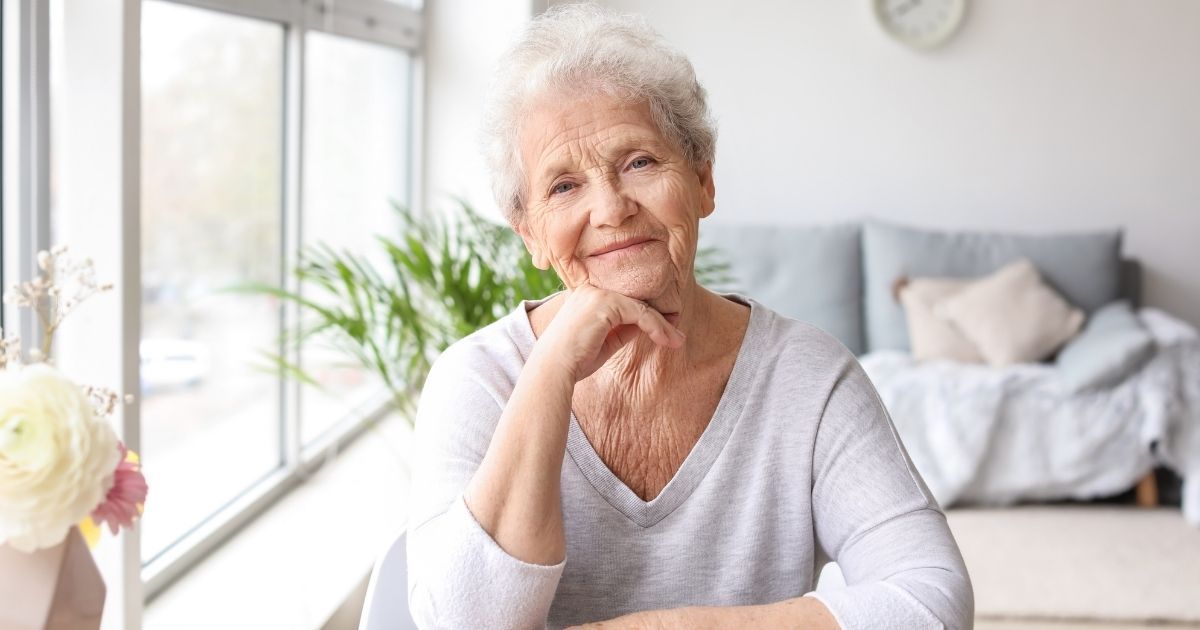For those aged 65+, an independent lifestyle is crucial for ensuring a higher quality of life. But as the average person ages, their body undergoes physical, emotional, and mental changes that make aging in place more difficult. At some point, most seniors require at least some outside assistance to remain independent. On the other hand, assessing your aging loved one’s ability to continue living safely on their own isn’t always easy. What follows are signs to watch for to ensure that your senior can continue living independently in place with the dignity they deserve.
Seniors Face These Age-Related Challenges
No matter how well an older adult takes care of themselves, age-related changes are inevitable. Seniors typically face these health and wellness challenges:
- Diminished hearing and eyesight
- Decreased flexibility, agility, and mobility
- Weakened immune system
- Social isolation
- Malnutrition
- Less physical and mental endurance
- Chronic illnesses like diabetes, heart disease, and arthritis
Once an older adult can no longer perform one or more activities of daily living (ADLs), their home can become an intimidating and even dangerous place.
The Benefits of an Independent Lifestyle
Most seniors who continue living independently reap these benefits as a result:
- More comfortable and private than other living arrangements
- Costs less than an assisted living facility or nursing home
- It helps prevent or slow the progression of memory loss
- Strengthens social networks
- It gives them more control over life decisions
Does My Loved One Need Help?
If you are concerned that your loved one can no longer take care of themselves without some outside assistance, look for these signs:
Frequent falls
Fall-related injuries and fractures send millions of independent seniors to hospital emergency departments every year. If your loved one has fallen several times within the past year, they may need some in-home assistance. Once you have their permission, do a home safety assessment and make necessary modifications based on what you’ve learned.
Social isolation
Depression, anxiety, and dementia keep many older adults from socializing as they should. On the other hand, seniors that stay socially engaged tend to enjoy happier, healthier, and even longer lives than those who are lonely and depressed.
Encourage your loved one to participate in activities they enjoy. Show them how to use the latest technologies, like video chats and social media, to reconnect with old friends- or make new ones. Sometimes all it takes is an old-fashioned phone call from you to bring a smile to your loved one’s face!
Changes in appearance
Rapid weight loss or gain, wearing the same clothes every day, and poor hygiene are all signs that your loved one may need help. Cognitive red flags like memory loss, confusion, and forgetfulness could be signaling the onset of dementia.
If limited mobility affects your senior, volunteer to assist them around the house by preparing meals, doing yard work, cleaning up, etc. If you suspect that your loved one has cognitive impairment, schedule a doctor’s appointment so they can evaluate them.
Driving safety issues
If your senior has recently received several tickets or been involved in multiple accidents, you should probably speak to them about driving safety. Suspicious dents and scrapes on their vehicle could also signify that it’s time to turn over the car keys for good. While respectfully sharing your concerns with them, discuss reliable transportation alternatives.
Poor money management
Stacks of past-due bills may be a sign that your senior is having trouble managing their finances. Offer to become a custodian on their bank and credit card accounts, which will also help protect them from financial scammers. If they haven’t already done so, encourage your loved one to prepare a will and to choose someone as their durable power-of-attorney (POA).
We Can Help Your Senior Loved One to Continue Living Independently
When your loved one’s independence is at risk, choosing the right caregiver can be challenging. At Adultcare Assistance Homecare, we’d love to have an open dialogue with you about your needs and how we can help your loved one comfortably and affordably age in place. As a locally owned agency with a long track record of success, our highly trained caregivers can step in and provide your family with the care that’s needed.
Our home care services include respite care, companion care, medication reminders, senior transportation, light housekeeping, and even 24-hour, live-in assistance. To learn more about our award-winning services now or to get a FREE Home Care Assessment for a senior in Phoenix, Sun City, or Tucson, AZ, today, please visit Adultcare Assistance Homecare at: adultcareassistance.com.

